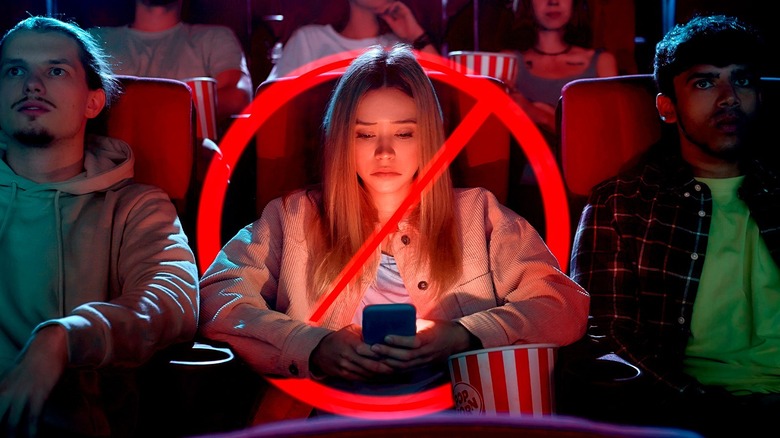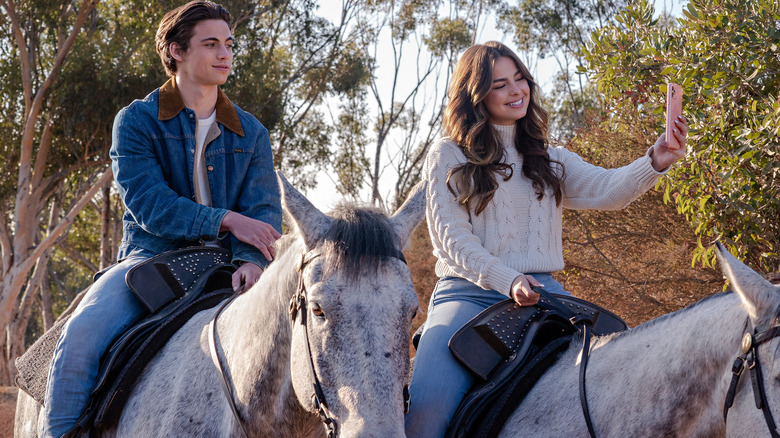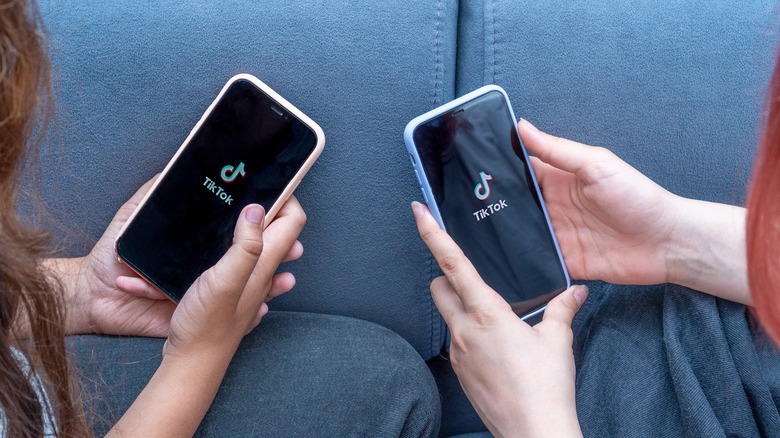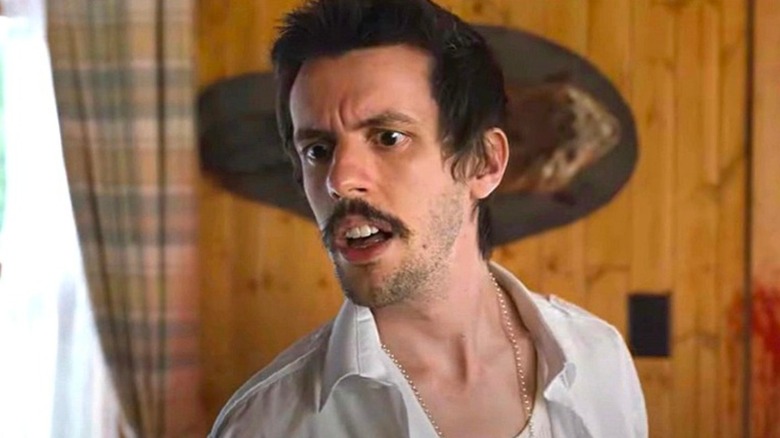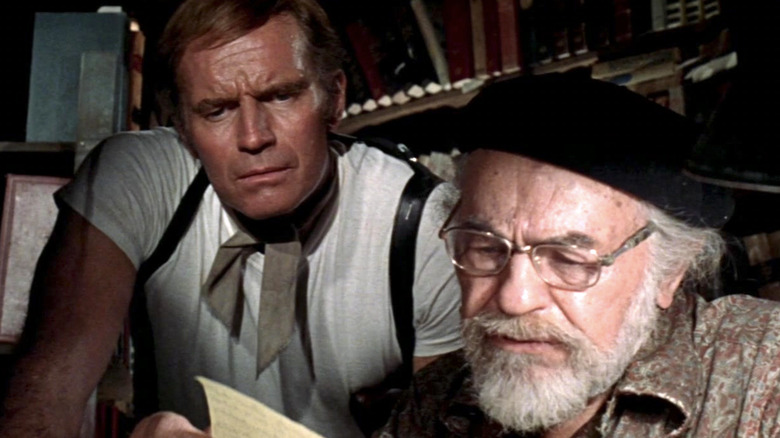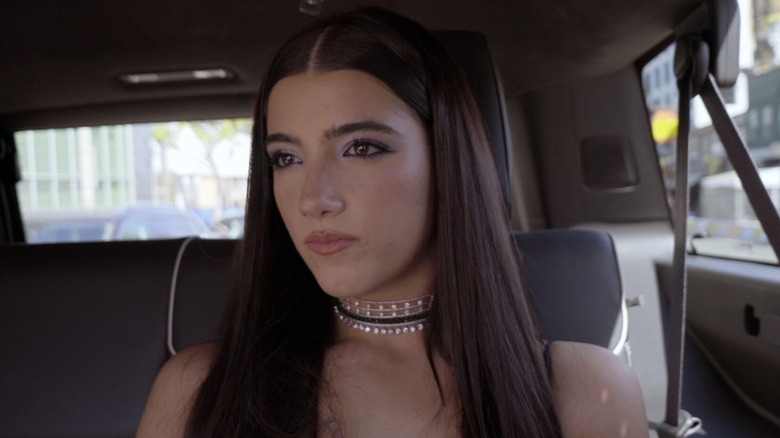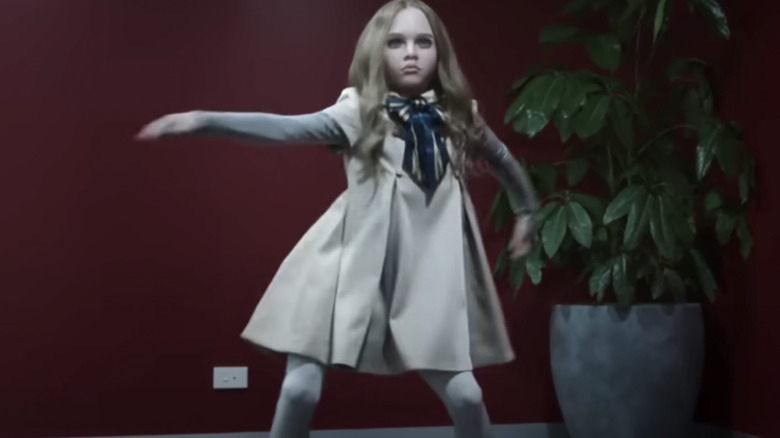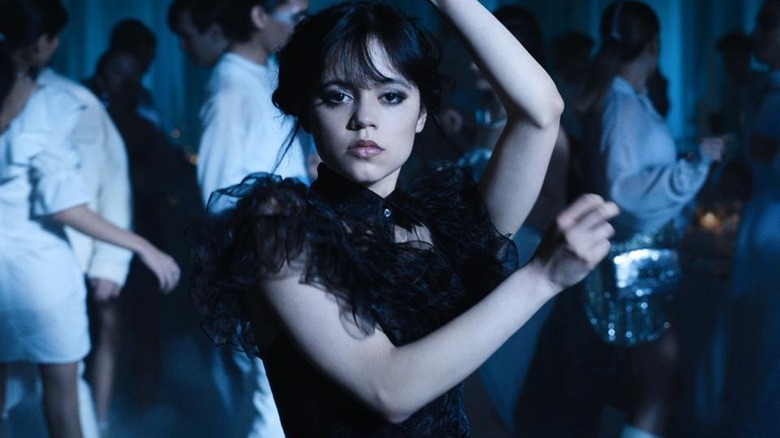Banning TikTok Would Make Me Sad And Be A Major Blow To Online Film Discourse
Rather than addressing climate change, gun reform, declining average life expectancy, universal healthcare, rampant opioid addiction, affordability of college educations and houses, bank collapses, and income inequality, the United States Congress has decided that enemy number one is TikTok.
A bipartisan effort has materialized of congresspeople wanting to ban the app for its purported ties to China. I'm not here to get into the nitty-gritty of the effort, only to say that it's poorly thought out and based on fallacies. When TikTok CEO Shou Chew testified in front of Congress, many voiced concerns about data privacy on the app and how the Chinese Community Party could access Americans' data, but privacy concerns exist for every app and social media platform.
Look, I'm not here to rant against the government. I want to talk about what TikTok means to me and why everyone should be fighting against a ban. I'm a content creator on the platform with over 180,000 followers, and through TikTok, my life has dramatically improved: losing this platform would significantly decrease my quality of life, along with many others who are in similar positions to me, who have made both friends and income through the app.
Entire communities have been built on TikTok
A common misconception about TikTok is that it only consists of people dancing. You can certainly find that, but through its existence, numerous communities have emerged surrounding niche topics. No matter what your hobby or interest is, there are people talking about it on TikTok, from books to camping to food. Naturally, I'm on #MovieTok where we talk about all things related to film, television, and pop culture. Now discussing these things isn't new to TikTok. Obviously, there are many platforms to go on to discuss them.
However, TikTok felt different to me. I joined the app in 2020 when lockdowns were still in place, a common thread amongst the creators I spoke to. I've been working from home since 2015, so staying at home during the day didn't necessarily change my habits too much, but I definitely found myself more isolated. Having a platform where I could actually see people talking about topics I was interested in felt like I could connect with people during a time when disconnection ran rampant. Sure, you can post a movie hot take on Twitter or review something on Letterboxd, but reading content just didn't hit the same way as actually seeing someone seemingly just hanging out in their house or apartment.
During a time when we couldn't see people face-to-face, TikTok gave us a platform to connect. I've had many conversations with people I've met over the app and even met a couple in-person. My story isn't unique. Plenty of other people have found community on the app, which would be irrevocably damaged should it go away.
TikTok is about the friends we made along the way
This may come as a surprise to you, but I don't have many friends. I know, I know, a guy whose job it is to stay home and write about how rad "John Wick" is has a hard time connecting with other people. I certainly had Facebook and Twitter before TikTok was a thing, but there was always a sense of being kept at arm's length from others, and it was difficult to make new friends through those platforms.
That all changed with TikTok. I've met numerous people I share interests with. Rather than leaving a video comment that may or may not ever get read, you can share video responses to other people's videos, or create videos responding to comments. It's much more conducive for building bonds, and in real life, I've had the chance to meet several friends I'd connected with over TikTok at D23 and TV premieres.
I've spoken with other movie creators who would be impacted by a TikTok ban, and everyone has made friends through the app they wouldn't have made otherwise. As explained by Amanda Castrillo, who goes by @amandajustvibin, "I have made lifelong friends through TikTok. I literally flew across the country to attend one of my mutual's birthday parties. We hang out whenever we're in the same town." Losing TikTok would be like losing the mall where you and your buddies hang out. You could maybe find somewhere else to hang out, but it may be too far for one of your friends, not to mention you may have to pay to hang out there. TikTok is a platform many have used to connect, and a ban means we could lose contact with people we've grown close to.
TikTok has proven invaluable to film discourse
While you can talk about film and television anywhere, TikTok is the best platform for more nuanced discussions. Wherever there's internet, there are going to be trolls in some capacity, but TikTok feels less toxic. Maybe it's because you're watching a video of someone, it humanizes them a bit, compared to random avatars.
I'm not the only one to notice how TikTok has allowed for a greater appreciation for discussing movies. Jared Buckendahl (@jbuckstudios) pointed out the expediency by which people can be exposed to new opinions on a film in a short amount of time: "I think you can view dozens of different opinions on a movie, TV show, entertainment news story in a matter of minutes. Not only getting your favorite influencers instant reaction, but you can also jump into the comments and argue your point, make friends, discover other creators, even entirely new movie/TV recommendations you've never heard of."
With TikTok, where most videos are no longer than a minute, opinions can be expressed much more quickly than on YouTube. When new movies come out, it's easy to get recommended one review after the next to get a general consensus on whether it's worth checking out. Bryan Tosh (@allthemoviethings) agreed with that assessment: "In my experience, TikTok has been the most powerful platform for film and TV discourse. It is the closest thing to having those heated and passionate conversations in person."
Without TikTok, movie creators would be scattered to the wind like Dragon Balls.
TikTok's platform provides a wide range of film topics
Naturally, the bulk of TikTok movie discourse boils down to whatever's popular at that time. It's pretty easy to find a range of reactions when a new episode of "The Mandalorian" drops or the latest superhero movie release. But there's room for film education, as well, as Alec Hamlin (@dontbesmartalec) noted, "I think TikTok is amazing for the fact that I can ramble about film — something more esoteric to other people I talk to — and there is an audience who wants to hear that."
I've seen this first-hand. A popular video I made centered on 1973's "Soylent Green" and how it kind of predicted the problems the U.S. would face in 2022 with climate change and income inequality. A lot of people commented about how they need to check it out, so driving people to watch an older film they may not have viewed otherwise is a big win in my book.
But there's also the matter of greater diversity of voices who have managed to carve out communities for themselves on the app. Dillon Avnet (@cinemanation) found this to be a major plus of the platform: "Because of TikTok's algorithm, it really feels like anyone can put themselves into a conversation if they want to, which allows for a broader discussion that's more involving and diverse." There's still an element of luck involved with blowing up on TikTok, but with enough passion, the app does help significantly in getting more voices out there, and greater diversity in discussing films only helps in letting more people be seen.
Many have found financial success on TikTok
TikTok has elevated many users moreso than other social media platforms, and that's resulted in lucrative financial opportunities. Naturally, not everyone is going to be Charli D'Amelio, but through the TikTok Creator Fund and brand partnerships, it's possible to make a decent chunk of cash by talking about what you love. During a time when a dozen eggs can set you back over $6, that money can mean the difference between staying afloat and drowning.
While Amanda Castrillo works outside of TikTok, a ban would hit her financially: "While my main income isn't paid promotions, they still help out a lot. It's nice to be able to have savings, just in case funds, and not live paycheck to paycheck. I can actually be comfortable and enjoy my life and what's left of my 20s with the extra income I make from TikTok." Meanwhile, Jared Buckendahl is a full-time content creator who would be hit hard with a ban. As he explains, "Most of my reach/income is derived from the TikTok platform. I would continue to create, because I was doing that before TikTok, and in different forms even before that. If anything it would be a huge set back."
And the solution isn't as easy as creating content for another platform. Meta, which owns Facebook and Instagram, recently announced the end of creator bonuses for short-form content. More social media platforms incentivize these businesses to attract the very best, so losing a major competitor for Meta means it doesn't have to compete as much to get creators to migrate over there. But creators deserve to profit off of their work, and while TikTok certainly isn't perfect at fair monetization, it's one of the best options people have at the moment.
Movie theaters have benefitted off TikTok, too
It goes without saying movie theaters have had a rough go at it the last few years. The pandemic shuttered theaters for an extended period of time, and even though things are pretty much back to being fully open, theaters are still struggling, with 2023 serving as a major indicator of how the health of the movie theater industry will be in a post-COVID world.
However, there have been some bright spots at the box office recently, and TikTok has definitely aided studios. "Top Gun: Maverick" was one of the biggest hits in 2022, grossing nearly $1.5 billion at the box office. Paramount took an aggressive social media approach to getting butts in seats, including a hashtag challenge (#TopGunMode) encouraging users to show off some of Maverick's swagger. Paramount also courted influencers to attend early screenings to get the word out. Obviously, we don't know how much of the movie's box office take was a result of TikTok: it also received great reviews and is a sequel of a beloved '80s classic. However, the point is film studios can find great success by utilizing new technology to reach audiences they may not have reached otherwise. Tom Cruise may have saved movie theaters, but TikTok lent a helping hand.
Other viral sensations occur organically. Dance scenes from "M3GAN" and "Wednesday" blew up on the platform, no doubt courting interest in getting people to actually check out those properties. A TikTok ban still leaves other social media platforms to promote movies, but for getting the word out in an organic fashion, targeting people of all different demographics, TikTok really can't be beat.
The TikTok ban goes far beyond TikTok
Listen, I'm not going to simp for a multi-billion dollar corporation. TikTok and ByteDance definitely have their problems, many of which are shared by other social media companies. But the solution isn't an outright ban — which by extension threatens numerous people who make income through the app, and the small businesses that advertise through there. Stronger data privacy laws should be enacted that apply to all apps.
And just in case you've read this far without really caring if TikTok gets banned, the RESTRICT Act (which sounds on-the-nose Orwellian) grants the federal government broad-ranging powers with minimal oversights to ban anything in the future potentially related to a "foreign adversary." The last time Congress rushed through a piece of legislation with xenophobic undertones under the guise of protecting Americans while actually limiting liberties, we got the PATRIOT Act. Making TikTok the media focal point of the conversation really just functions as a Trojan horse to get a certain percentage of the population not to care, but if passed, the bill would fundamentally change the government's role in monitoring online content. Millions of Americans' finances and happiness are at stake, so if you want to oppose this bill, please contact your representatives and senators to voice your opposition.
